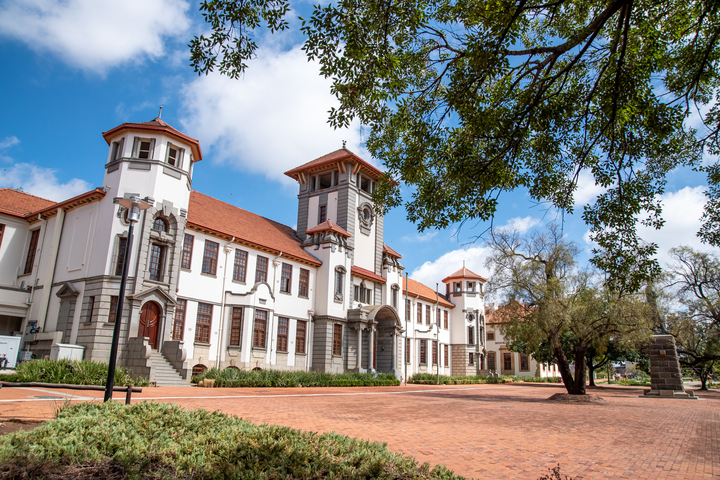University of the Free State experts in various fields are assisting the South African government on a wide variety of fronts to mitigate the effect of the COVID-19 pandemic and to actively look for a cure.
Public Health Emergency Solidarity Trial:
Clinicians from the Department of Internal Medicine, the Department of Critical Care, and the Division of Virology are joining forces with FARMOVS to participate in the largest global trial on COVID-19 – the Public Health Emergency Solidarity Trial, under the leadership of the World Health Organisation.
FARMOVS also provides support with the evaluation of existing drugs (repurposing) as well as the development of novel drugs for the treatment of COVID-19, while its facilities in the Free State capital, Bloemfontein, are earmarked for the continuation of healthcare to non-COVID-19 patients in order to free up space in isolation wards elsewhere.
Assistance to provincial government:
The UFS Disaster Management Training and Education Centre for Africa (DiMTEC) assists the Free State province to jointly manage all safety and security-related aspects of any planned event or any major incident related to the pandemic.
A multi-disciplinary task team comprising researchers from a broad range of disciplines are working towards finding solutions, not only for the current outbreak, but also to build capacity for future outbreak preparedness. The team comprises academics from the natural and health sciences, clinicians, mathematicians, statisticians, actuaries, lawyers, the humanities, and social sciences, liaising with the provincial Department of Health regarding matters such as modelling and prediction.
Biosafety Level-3 facility:
The UFS hosts a Research Chair of the South African Research Chairs Initiative (SARChI) in vector-borne and zoonotic diseases, and recently invested in the establishment of a biosafety Level-3 facility. This has resulted in invaluable expertise to plan and conduct research on zoonotic and medically significant viruses, contributing to the fight against COVID-19 in the following ways:
- Developing a framework for sharing COVID-19 data with the public to mitigate anxiety.
- Establishment of panels of positive and negative samples for assay development and validation.
- Development of diagnostic reagents to reduce the cost of antibody tests.
- Development of the Free State COVID-19 Data Lake, which is a consolidation of various forms of cross-sectional data streams into centralised systems that are used for rapid decision making.
Ground-breaking research:
The UFS played a major role in a recent ground-breaking scientific breakthrough when an expert from its Centre for Environmental Management spearheaded a South African research team that became the first to isolate the SARS-CoV-2 RNA from wastewater as part of a full-service virus-risk forensic programme. This major development in the field of sewage surveillance opens up the possibility of predicting and monitoring potential COVID-19 hotspots to focus intervention by decision-makers and public health officials in these areas. It can also help to assess the true extent of SARS-CoV-2 infections in a particular area.
As the COVID-19 virus is shed in human waste, sewage surveillance potentially enables governments to determine the viral load of an entire population by monitoring the catchment area of a specific sewage works. This will limit the need for individual testing, which can be costly, logistically complex, and at best provides an incomplete picture of infection rates. It also provides a possible way to address the dilemma posed by asymptomatic carriers who often evade the radar of individual testing and act as vectors that accelerate infection in society.
Sewage surveillance can accurately deliver data about the total viral load present in a defined cohort of people at a precise moment in time, and has the potential to detect a second wave before it is manifested in the form of people reporting to doctors with symptoms.
A number of organisations developing next-generation science have already shown a keen interest in this newly developed technology.

